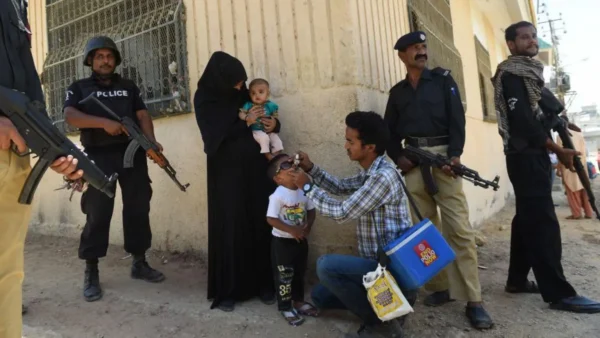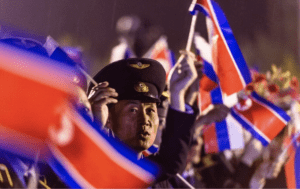Six new cases of polio have been reported in Pakistan this month, bringing 2024’s national case count to 39 and continuing the trend of rising cases over the last three years. Pakistan’s goal of eradicating poliovirus transmission has faced consistent setbacks since the implementation of the National Emergency Action Plan (NEAP) for Polio Eradication back in 2011. Despite the many effective actions taken to eliminate this disease by 2020, this unrealized goal has since been delayed and is now intended for 2025.
Polio (Poliomyelitis) is an infectious disease that mainly affects children aged 5 and under. Caused by a virus that attacks the nervous system, polio is primarily transmitted through the fecal-oral route. Its most frightening characteristic is irreversible paralysis which the virus can cause in a matter of hours and in some cases leads to death. Although Poliomyelitis is an incurable disease, preemptive vaccination has helped decrease global cases by 99% since 1988. Today the endemic transmission of the virus remains only in the bordering countries of Pakistan and Afghanistan, but this is enough of a threat to pose concerns about a global resurgence.
Apart from the COVID-19 pandemic whose vaccination campaign took precedence over polio, a major impediment of the NEAP for Polio Eradication has been extreme weather events resulting from climate change. Characterized by experts as one of the most vulnerable countries to the climate crisis, Pakistan experienced a historic heat wave in 2022. The heat wave was followed by the worst floods in Pakistan’s history, which displaced close to eight million people including polio vaccination workers and preventing vaccination activities.

Healthcare workers traveled through flooded areas by boat, some even swam so that vaccines could reach children in inaccessible areas during the 2022 flood in Pakistan. Photo credits: Pakistan Polio Eradication Programme
Another barrier to the timely completion of the vaccination campaign is differences in ideology. Namely the significant distrust of foreign health care providers, which stems from accusations that the US used a fake immunization program in part of their efforts to capture Ossama Bin Laden back in 2011. Religion, misinformation, and a lack of awareness of the severity of polio have also contributed to a reluctance to accept national campaigns. Sentiments of distrust are most prevalent in the southwestern province of Balochistan also where most of the recent cases have been reported.
The resistance to vaccination campaigns has been taken up by militias in Pakistan for decades. Deeply rooted in beliefs that view vaccines as a Western ploy for influence and power, some militants even claim that vaccines are a Western conspiracy used to sterilize children. These messages perpetuated throughout communities as well as continuous acts of violence, including 27 attacks on polio workers this year in the Khyber Pakhtunkhwa province have held back the completion of vaccine rollouts, despite the country being incredibly close to their goal.

In some cases, polio campaign workers have been given armed guards to offer protection from militants opposing the vaccine campaign. Photo Credits: Getty Images
Both the Balochistan and Khyber Pakhtunkhwa provinces, where resistance and rates have been higher, border Afghanistan, where rates have also seen a sharp increase compared to 2023. Unlike their neighbor, however, Afghanistan’s Taliban leadership is hesitant in their actions to eradicate polio due to security fears and restrictions on women. This has led to what the Taliban has claimed as a “temporary” suspension of its polio vaccination campaign, a decision which could undo years of progress and have major consequences for the surrounding regions.

Female workers administering vaccines before the Taliban’s ban in Afghanistan. An unnamed official reported that in “areas where we have female workers, we don’t have cases of polio.” Photo credits M Sadiq/EPA
The sentiment however by Pakistani officials remains positive with another nationwide polio vaccination campaign launching on October 28 aiming to inoculate 45 million more children under the age of 5. This most recent campaign is keeping the country on track to hopefully meet its new target and eradicate polio in 2025, bringing the world one step closer to eliminating polio.
Featured image: A polio worker administers one of four required oral doses of the vaccine. Photo credit: Revel Inside




